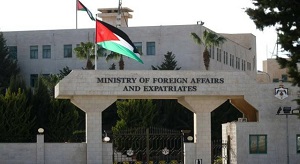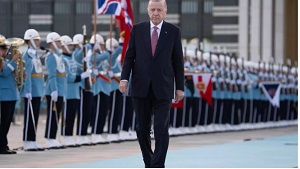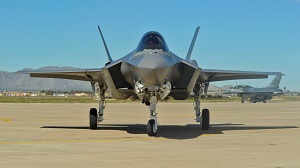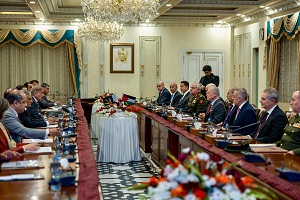Strengthening Jordanian-Pakistani partnership: A Royal vision for regional cooperation - By Hasan Dajah, The Jordan Times
Jordanian-Pakistani relations are among the most deeply rooted and enduring bilateral relationships in the Islamic world, with roots extending back nearly eight decades of cooperation and political, security, and diplomatic coordination. Over these years, the two countries have demonstrated a remarkable ability to navigate regional and international transformations, building a growing partnership based on trust, shared interests, and a commitment to the issues facing the Muslim world. His Majesty King Abdullah’s recent visit to Pakistan marked a pivotal moment in this trajectory, reaffirming both sides’ commitment to consolidating and expanding cooperation, and opening new avenues for economic, military, and technological integration, thereby enhancing their regional and international roles.
Since the establishment of diplomatic relations between Amman and Islamabad in 1948, more than 78 years ago, both sides have been keen to strengthen cooperation in the political, military, and economic spheres. The relationship has witnessed remarkable development. Security and defense coordination is a cornerstone of this partnership. Jordan's military expertise is highly valued by Pakistan, while Amman views Islamabad as an influential regional power in South Asia and the Islamic world, underscoring the importance of developing cooperation between the two countries.
The two nations also share similar views on most regional issues, most notably the Palestinian question. Both sides consistently affirm their rejection of any measures targeting Palestinians or affecting Jerusalem and its Islamic and Christian holy sites, while clearly supporting the two-state solution as the only path to achieving a just peace.
King Abdullah's recent visit to Pakistan provided a significant boost to reshaping bilateral relations within a broader framework of strategic partnership. During his visit, His Majesty held a series of fruitful meetings with the Pakistani President, the Prime Minister, and several senior officials. Discussions focused on expanding cooperation in the fields of economy, investment, defense, education, tourism, and trade. The King emphasized Jordan's commitment to developing relations in a way that serves mutual interests and the issues of the Islamic world, stressing the need to strengthen joint efforts in promising economic sectors. He also highlighted the importance of leveraging the significant potential of both sides, particularly in the pharmaceutical, information technology, higher education, and medical tourism sectors, to contribute to sustainable development for both parties.
Economic indicators suggest that both countries possess considerable untapped potential, opening the door for expanded trade and investment cooperation. Pakistan, with its large population and rapidly growing economy, represents a promising market for Jordanian products, especially in the pharmaceutical, phosphate, potash, and chemical industries. Conversely, Jordan offers Pakistani investors numerous strategic advantages, most notably its strategic geographic location, which serves as a gateway to trade with the Middle East, North Africa, and Europe, in addition to a supportive legislative environment and advanced logistical infrastructure that facilitates joint trade and investment expansion.
In this context, the King's visit included discussions on increasing trade and establishing joint projects, as well as exploring opportunities for cooperation in food security and renewable energy – issues of great importance to both countries given the current global challenges.
The talks focused on developing educational exchange programs, increasing university scholarships, and building academic partnerships between Jordanian and Pakistani universities. Cooperation in the tourism sector was also discussed, which could attract a larger number of Pakistani visitors, particularly for religious and medical tourism.
In the defense field, the two countries continue their historic partnership through joint exercises and the exchange of expertise, based on a shared understanding of the importance of strengthening defense capabilities in a region experiencing ongoing instability.
The Palestinian issue emerged as a central element in the King's meetings, with both sides emphasizing their rejection of any plans aimed at displacing Palestinians or altering the status quo in Jerusalem, stressing the need to protect Islamic and Christian holy sites there. They also agreed to support international efforts to halt ongoing Israeli aggression and to support the Palestinian people in achieving their legitimate rights and establishing their independent state within the June 4, 1967 borders, with East Jerusalem as its capital.
The visit comes at a critical juncture for the region, highlighting the importance of strengthening Jordanian-Pakistani coordination on various regional and international issues, whether related to regional security, combating terrorism, or supporting stability in the Middle East. The visit also reflects the King's vision of building a robust network of relations with influential Islamic countries, thereby solidifying Jordan's role in defending the causes of the Muslim world, enhancing its geopolitical position, and opening new horizons for its economy by expanding partnerships and developing channels of cooperation with the largest economies in the Islamic world.
King Abdullah's visit to Pakistan demonstrated that Jordanian-Pakistani relations are moving towards a deeper and more strategic phase, reflecting both countries' understanding of the importance of developing a modern partnership capable of keeping pace with global changes. Cooperation between Amman and Islamabad transcends the bilateral level to form a model for joint Islamic action, through supporting the causes of the Muslim world and promoting regional stability.
While new opportunities are opening up for the Jordanian economy through Pakistan, Islamabad looks to Amman as a reliable partner that can serve as a bridge to the Arab world. Thus, Jordanian-Pakistani relations continue their historical mission as exemplary relations built on mutual respect, joint action and mutual interests, on a shared path towards a more cooperative and prosperous future.
Latest News
-
 Jordan condemns Israeli minister’s calls to target Palestinian leadership
Jordan condemns Israeli minister’s calls to target Palestinian leadership
-
 Turkey seeks to host next COP as co-presidency plans falter
Turkey seeks to host next COP as co-presidency plans falter
-
 ‘Israel’ open to US F-35 sale to Saudi if it brings normalization: Axios
‘Israel’ open to US F-35 sale to Saudi if it brings normalization: Axios
-
 "Israeli tank fires near our forces in Lebanon," UNIFIL
"Israeli tank fires near our forces in Lebanon," UNIFIL
-
 King meets with Pakistan PM in Islamabad, emphasises importance of expanding cooperation
King meets with Pakistan PM in Islamabad, emphasises importance of expanding cooperation